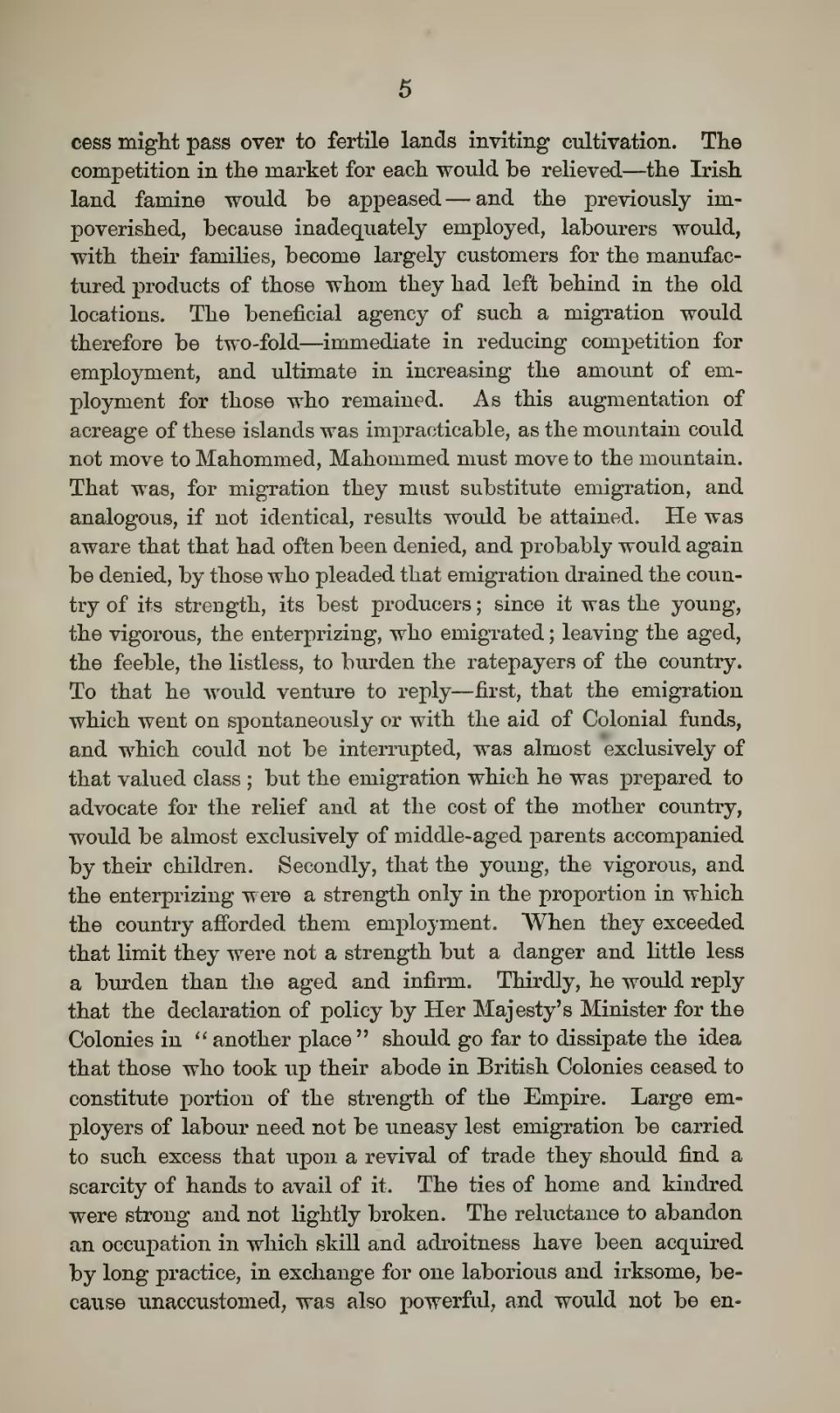5
cess might pass over to fertile lands inviting cultivation. The competition in the market for each would be relieved—the Irish land famine would be appeased—and the previously impoverished, because inadequately employed, labourers would, with their families, become largely customers for the manufactured products of those whom they had left behind in the old locations. The beneficial agency of such a migration would therefore be two-fold—immediate in reducing competition for employment, and ultimate in increasing the amount of employment for those who remained. As this augmentation of acreage of these islands was impracticable, as the mountain could not move to Mahommed, Mahommed must move to the mountain. That was, for migration they must substitute emigration, and analogous, if not identical, results would be attained. He was aware that that had often been denied, and probably would again be denied, by those who pleaded that emigration drained the country of its strength, its best producers; since it was the young, the vigorous, the enterprizing, who emigrated; leaving the aged, the feeble, the listless, to burden the ratepayers of the country. To that he would venture to reply—first, that the emigration which went on spontaneously or with the aid of Colonial funds, and which could not be interrupted, was almost exclusively of that valued class; but the emigration which he was prepared to advocate for the relief and at the cost of the mother country, would be almost exclusively of middle-aged parents accompanied by their children. Secondly, that the young, the vigorous, and the enterprizing were a strength only in the proportion in which the country afforded them employment. When they exceeded that limit they were not a strength but a danger and little less a burden than the aged and infirm. Thirdly, he would reply that the declaration of policy by Her Majesty's Minister for the Colonies in "another place" should go far to dissipate the idea that those who took up their abode in British Colonies ceased to constitute portion of the strength of the Empire. Large employers of labour need not be uneasy lest emigration be carried to such excess that upon a revival of trade they should find a scarcity of hands to avail of it. The ties of home and kindred were strong and not lightly broken. The reluctance to abandon an occupation in which skill and adroitness have been acquired by long practice, in exchange for one laborious and irksome, because unaccustomed, was also powerful, and would not be en-
